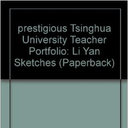In vivo acute toxicity of detoxified Fuzi (lateral root of Aconitum carmichaeli) after a traditional detoxification process.
الكلمات الدالة
نبذة مختصرة
Many herbs of traditional Chinese medicine (TCM) possess not only therapeutic efficacy, but also toxicity towards normal tissues. The herbal toxicities occasionally cause serious adverse events or even fatal poisoning due to the erroneous use of TCM herbs. Fuzi (lateral root of Aconitum carmichaeli) is such an herb with its toxic ingredient, aconites. Aconitine, mesaconitine, and hypaconitine are the main toxic components of Fuzi, which are hydrolyzed into non-toxic derivatives by water decoction. Therefore, long-time decoction was commonly applied as a traditional way to detoxify Fuzi before use. Nevertheless, recent clinical trials presorted on adverse events induced by long-time decocted Fuzi, putting some doubt on the safety of Fuzi after the traditional detoxification procedure. To thoroughly determine whether or not long-time decocted Fuzi was safe, we conducted in vivo acute toxicity assays using both rodent and zebrafish models and performed chemoprofile analyses using HPLC and UPLC-MS. The HPLC analysis showed that toxic aconitine components were hydrolyzed into benzoyl derivatives with increasing time of decoction. These aconitines were undetected by HPLC in Fuzi after 2 h-decoction (FZ-120), indicating seemingly non-toxicity of FZ-120. Unlike the non-decocted Fuzi (FZ-0) and 60 min-decocted Fuzi (FZ-60) with lethal toxicity, FZ-120 at 130 g/kg did not cause any deaths or side effects in mice regarding body weight and biochemical parameters. This seems to confirm safety of Fuzi after long-time decoction. However, histopathological observations revealed an abnormal liver phenotype and a significant decrease of the liver index following FZ-120 treatment, indicating a potential hepatoxicity of FZ-120. By using a zebrafish model, we observed that FZ-120 at a dose range from 288 to 896 μg/ml caused considerable adverse events including arrhythmia, liver degeneration, yolk sac absorption delay, length decrease, and swim bladder loss, which clearly speak for acute toxicity on cardiovascular, digestive, development, and respiratory systems. The dose range of FZ-120 was lower than that used for clinical application in human beings. Moreover, UPLC-MS revealed that FZ-120 still contained toxic aconitines that were not detectable by HPLC, which might explain its acute toxicity in zebrafish. We concluded that Fuzi is not sufficiently safe even after long-time decoction. The zebrafish model combined with UPLC-MS assay may represent an appropriate test system to unravel aconitine-related acute toxicity.




